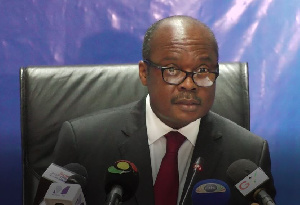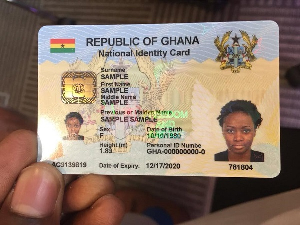Bank of Ghana Exits Gold for Oil Programme After GH¢41.82 Billion Loss

The Bank of Ghana (BoG) has officially pulled out of the government’s Gold for Oil initiative following massive financial losses recorded under the programme. The decision, which signals a significant policy shift, was made during a board meeting held on March 13, 2025.
According to the central bank’s financial report, the BoG recorded a staggering loss of GH¢41.82 billion related to the programme for the financial year ending December 31, 2024. This is a dramatic rise from the GH¢317 million loss posted the previous year—highlighting the growing financial strain associated with the initiative.
The report revealed that as of the end of 2024, the BoG had committed GH¢4.69 billion in seed capital to support the Gold for Oil programme. Of the overall exchange losses incurred by the central bank, GH¢1.82 billion was specifically linked to the initiative, contributing heavily to its financial woes.
Background of the Gold for Oil Programme
Launched as a bold strategy to stabilise fuel prices and reduce pressure on Ghana’s foreign exchange reserves, the Gold for Oil initiative was designed to use locally mined gold to purchase oil on the international market. The government hoped that this would reduce the demand for U.S. dollars and strengthen the local currency while also ensuring steady fuel supply.
However, while the concept was innovative, the execution appears to have faced serious challenges. The massive losses recorded indicate that the strategy did not yield the expected financial or economic returns.
Financial Implications
The BoG’s decision to withdraw reflects growing concerns about fiscal sustainability and central bank balance sheet management. The bank’s GH¢41.82 billion loss significantly impacts its financial stability, especially in a year where economic recovery remains fragile.
Experts have pointed out that a central bank’s sustained involvement in quasi-fiscal programmes such as this one can undermine its core mandate of maintaining monetary stability. By stepping back, the BoG appears to be refocusing on its traditional responsibilities—such as controlling inflation and managing interest rates.
What Happens Next?
With the Bank of Ghana now out of the picture, the future of the Gold for Oil programme hangs in the balance. It is unclear how the government plans to finance and manage the initiative moving forward.
Analysts predict that without the BoG’s backing, the government will either need to secure private sector partnerships, seek external funding, or possibly wind down the programme altogether. Whichever path is chosen, significant restructuring is expected.
Reactions and Outlook
The central bank’s exit has sparked a wave of public and political reactions. While some have praised the BoG for cutting its losses and stepping away from a financially draining programme, others have questioned the initial decision to involve the bank in such a high-risk strategy in the first place.
Policy analysts are now calling for increased transparency and better risk assessment in the design and implementation of similar economic interventions in the future.
In the meantime, Ghanaians are left waiting to see how the government will adjust its policies to ensure stable fuel prices and protect the local currency in the absence of the Gold for Oil programme.
Key Figures:
-
Total BoG Loss (2024): GH¢41.82 billion
-
BoG Loss (2023): GH¢317 million
-
Seed Capital Committed: GH¢4.69 billion
-
Exchange Loss Attributed to Programme: GH¢1.82 billion
The BoG’s withdrawal from the Gold for Oil programme marks a pivotal moment in Ghana’s economic policy landscape—one that will likely have long-term implications for the country’s approach to resource-backed trade and macroeconomic stability.
Source: Thepressradio.com





